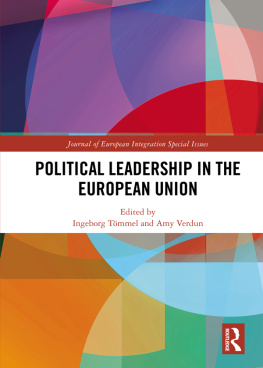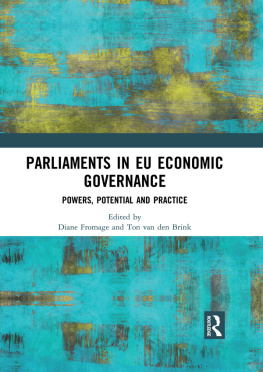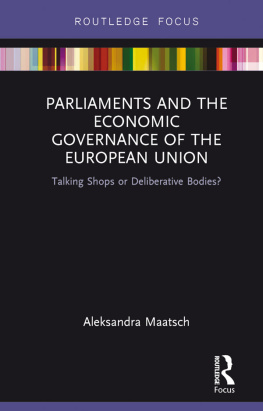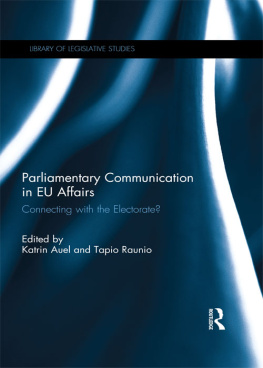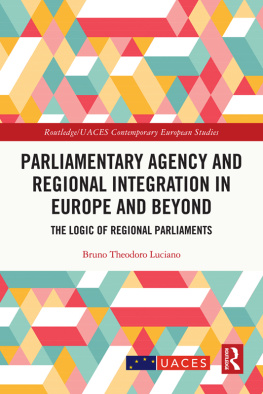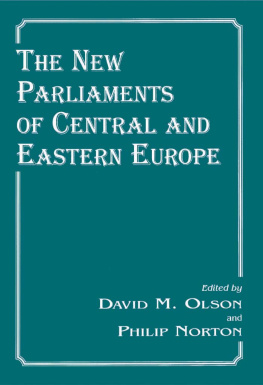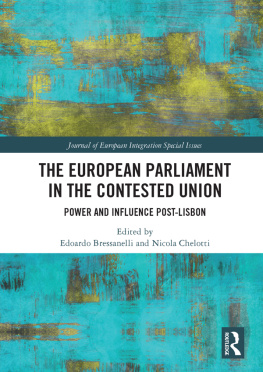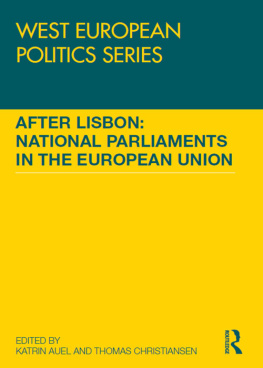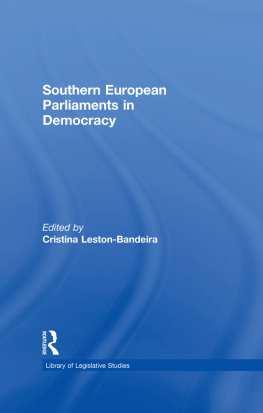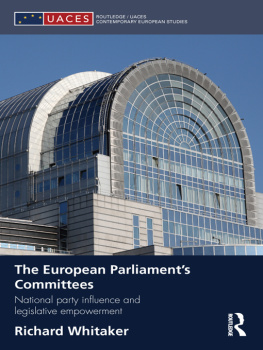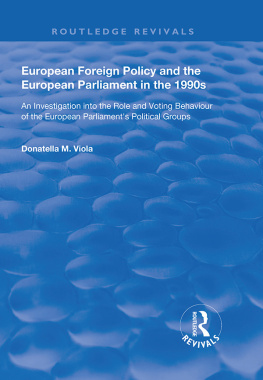Copyright Gavin Barrett 2018
The right of Gavin Barrett to be identified as the author of this work has been asserted by him in accordance with the Copyright, Designs and Patents Act 1988.
Published by Manchester University Press
Altrincham Street, Manchester M1 7JA
www.manchesteruniversitypress.co.uk
British Library Cataloguing-in-Publication Data
A catalogue record for this book is available from the British Library
ISBN 978 1 7849 9321 4 hardback
First published 2018
The publisher has no responsibility for the persistence or accuracy of URLs for any external or third-party internet websites referred to in this book, and does not guarantee that any content on such websites is, or will remain, accurate or appropriate.
Typeset by Out of House Publishing
This book concerns the evolving role of national parliaments in the European Union. That role, as will be seen in .
The book focuses on one parliament as a case study in this regard: the national parliament of Ireland, the Oireachtas. The basic structure of that parliament is modelled on that of the United Kingdom. Ireland operates the so-called Westminster system of parliamentary government. It has a bicameral legislature. Under the Irish Constitution,
Like the United Kingdom, Ireland joined the then European Communities on 1 January 1973. turns to the topic of possible future reforms.
The research in this book should be regarded as up to date to the end of the 31st Dil (which was dissolved on 3 February 2016), although it has occasionally been possible to insert more recent material. Time and events have not stood still since the end of the period under study even if the implications for the Oireachtas role in relation to European Union affairs remain as yet largely unclear. The Oireachtas generally takes time to adjust in the wake of Dil elections, given the constitutional requirement for Seanad elections to take place not later than ninety days after a dissolution of Dil ireann,Seanad. The process did so with particular slowness in 2016, thanks in particular to the failure of any political party or viable coalition of parties to secure victory in the general election which followed the dissolution of the 31st Dil.
In brief, the sequence of events which has occurred since the period studied in the main part of this book has been as follows.
At the request of the then Taoiseach (or prime minister) Enda Kenny, the 31st Dil was dissolved by President Michael D. Higgins on 3 February 2016. The subsequent general election for membership of the 32nd Dil
The 32nd Dil had already met for the first time on 10 March. The general election results had dealt a severe setback to Taoiseach Enda Kennys Fine Gael (although it remained the largest political party) and had devastated its junior Coalition partner, Labour. No party or coalition of parties secured enough seats to govern without opposition cooperation. A new Fine Gael-led administration could be formed only with some difficulty, only as a minority government and only after tortuously long negotiations. Subsequently, on 6 May (on what was its fourth attempt) the Dil finally re-elected Enda Kenny as Taoiseach, making him the first ever Fine Gael party Taoiseach to win re-election. (Notwithstanding this, the aftershock of the election was sufficient to lead to Kenny being replaced by Leo Varadkar as Taoiseach just over a year later, on 14 July 2017.)
Perhaps unsurprisingly, given its minority status, the new administration has suffered from ongoing instability and an inability to ensure legislation is adopted at anything near the rate of previous parliaments.Union (so-called Brexit), the implementation of which has already and will continue to present difficult negotiating challenges for Irish governments, particularly given such factors as the high level of trade between the two states, the enduring interest of both states in maintaining the hard-won peace in Northern Ireland secured by the 1998 Good Friday agreement after decades of political conflict and the political risks associated with a hard border between Northern Ireland and the Republic.
The Oireachtas faces challenges which include imposing adequate democratic accountability, particularly in relation to Irish governmental involvement in any such (Commission-led) negotiations at Council and European Council level, and subsequently in relation to any arrangements which derive from them both vis--vis the European Union and vis--vis the United Kingdom. Its response to such challenges remains to be fully seen.
On the positive side, the Oireachtas committee structure has seen some significant reforms. At the time of writing, the number of joint committees has been increased to twenty-one. There has also been recourse to more over-arching committees, an example of this being the establishment of the Dil Select Committee on Budgetary Oversight in July 2016 with the objective of enhancing the role of the Oireachtas in the budgetary formation process, and which includes in its role consideration of the limitations arising from the application of EU fiscal rules. Use has also increased of ad hoc committees (including, to take one somewhat European-related example, through the establishment of the Joint Committee on the Future Funding of Domestic Water Services, which sought to find a way ahead in the politically controversial field of water charges). Another change to the operation of committees is that efforts have been made to avoid previously endemic clashes between Dil time and committee time (so that the Dil now sits only in the afternoon).
Of particular relevance to the contents of this book has been the formation of the Joint Oireachtas Committee on European Union Affairs, which held its first meeting in private on 19 July 2016, and its first public meeting on 7 September. The chair of the new group is Independent TD Michael Healy-Rae, whose chairmanship reflects the very large number of independent members elected to the 32nd Dil.
The membership of the new Committee comprises seven TDsin the previous (31st) Dil period, this seems inadequate to establish systematic accountability in European affairs, although it is only fair to acknowledge that a considerable portion of the fault for this lies with (a) the (by now normal) slowness in re-establishing the Oireachtas Committee system after the 2016 election and (b) the considerable delay on this occasion before it proved possible to put together any new government at all.
As The new Dil Business Committee also hosted a half-day symposium on the economic implications of Brexit on 22 September 2016 in the Mansion House for members of the Dil, Seanad and European Parliament to inform debate in advance of the then forthcoming parliamentary session.
Three members of the European Commission appeared before Dil committees on separate occasions to discuss controversial issues including Brexit in the same twelve-month period. Nor was there any sign of such activity reducing in intensity. Another interesting development in this field was the Seanads decision in February 2017 to establish a ten-person cross-party Seanad Special Committee on the Withdrawal of the United Kingdom from the European Union, in order to consider the implications for Ireland of Brexit. The Special Select Committee was to report to Seanad ireann on 4 July 2017. From April 2017, it had become active in hearing submissions by a range of actors in political life (including two former Taoisigh), civil society and business.


